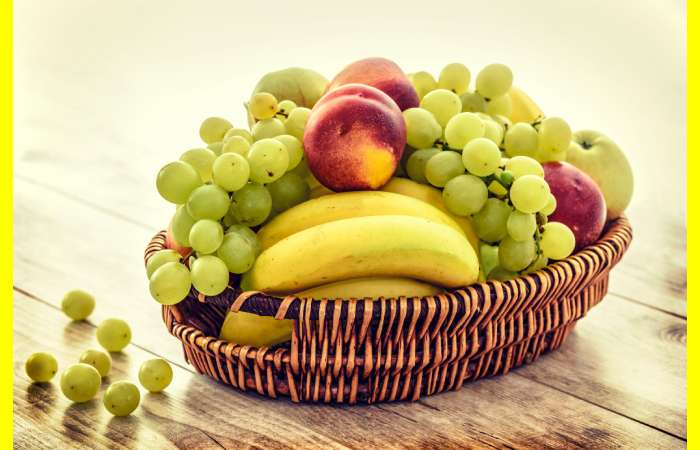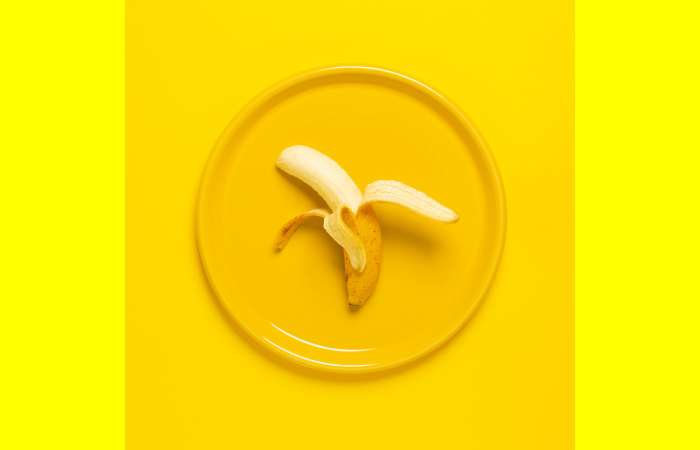Table of Contents
Introduction
Banana Nutrition Facts 100g – Bananas are among the most significant food crops on the planet.
They approach from a family of plants called Musa that is native to Southeast Asia and grown in many of the warmer areas of the world. Bananas are a sound source of fiber, potassium, vitamin B6, vitamin C, and various antioxidants and phytonutrients.
Many types and sizes exist. Their color frequently ranges from green to yellow, but some variety is red.
In this Article, We are going to tell u some of the facts and benefits of bananas.

Carbs – Banana Nutrition
Bananas are a rich source of carbs, mainly as starch in immature bananas and sugars in ripe bananas.
The carb composition of bananas changes severely during ripening. The central part of unripe bananas is starch. Green bananas contain up to 80% starch deliberate in dry weight.
During ripening, the starch is renewed into sugars and ends up organism less than 1% when the banana is fully ripe. The most general types of sugar in ripe mad are sucrose, fructose, and glucose. In ripe bananas, the total sugar content container reaches more than 16% of the bright weight.
Bananas have a moderately low glycemic index (GI) of 42–58, depending on their ripeness. The GI measures how quickly carbs in food pierce your bloodstream and raise blood sugar. Bananas’ high content of unwilling starch and fiber explains their low GI.
Fibers – Banana Nutrition
A high quantity of the starch in unripe bananas is opposed to starch, which passes during your gut undigested.
In your large intestine, this starch remains fermented by bacteria to form butyrate, a short-chain fatty acid that appears to be beneficial to gut health.
Bananas are also a high-quality source of other types of fiber, such as pectin. Several of the pectin in bananas is water-soluble.
After bananas ripen, the number of water-soluble pectin increases, which is one of the main reasons bananas become soft as they age.
Both pectin and opposed to starch moderate the rise in blood sugar after a meal.
Vitamins and Minerals
Bananas are a prime source of several vitamins and reserves, especially potassium, vitamin B6, and vitamin C.
Potassium. A diet towering in potassium can lower blood pressure in people with elevated levels and remuneration heart health. Bananas are a good source of potassium.
Vitamin B6. Bananas are high in vitamin B6. One medium-sized banana canister provides up to 33% of this vitamin’s Daily Value (DV).
Vitamin C. Like mainly fruit. Bananas are a good font of vitamin C.
Health Benefits of Bananas

Bananas boast some health profits.
Heart health
Heart disease is the world’s most common cause of premature death.
Bananas are high in potassium, a stone that promotes heart health and normal blood pressure. One medium-sized banana contain around 0.4 grams of this mineral.
According to an extensive analysis of many studies, daily consumption of 1.3–1.4 grams of potassium link to a 26% lower risk of heart disease.
In addition, bananas contain antioxidant flavonoids associated with a significant decrease in heart disease risk.
Digestive Health
Banana Nutrition Facts 100g – Unripe, green bananas contain considerable amounts of as opposed to starch and pectin, a type of nutritional fiber.
Anti starch and pectins act as prebiotic nutrients, supporting the expansion of beneficial gut bacteria.
In your gut, these fibers ferment by beneficial bacteria that form butyrate, a short-chain fatty acid that promotes gut wellbeing.
What Happens if You Eat 2 Bananas a Day
Banana is a prevalent food pretty much wherever you go. Grown, they represent the fourth most valuable crop worldwide. They are delicious ripe, cooked, dried, and even slightly under-ripe. They are great plain but nicely balanced ice cream, cereal, and yogurt. Bananas are too one of the healthiest snacks you can contain, with enough sugariness to make you overlook how much nutrition you’re getting.
Bananas are full of fit potassium, fiber, vitamin C, and B6, but they recommend for people with certain conditions. But what would occur if you ate two bananas every day? We will look at the health outcome of that habit, the good and the not-so-good. And since we know you’re wondering, we’ll also let you know how many bananas you’d have to eat to overdose.
You’ll Have to Work Hard to Overdose
As we’ve mentioned, most Americans lack potassium, and two whole bananas a day won’t provide your complete RDA. You’d want to eat 7 or 8 bananas to get sufficient daily potassium starting that Source alone. However, too significantly potassium is just as dangerous as too little – it can destroy your heart muscle. But for a fit person to reach that danger zone, they would need to eat 400 bananas in one day! We suspect that abdomen ability would stop that attempt long before anyone got too much potassium from eating bananas.
People taking beta blockers for heart disease should remain careful, as beta blockers raise potassium levels. And bananas are secret as “medium” on the glycemic index, so a twice-a-day habit might not be the best idea for people with diabetes. Otherwise, have at it. Study indicates that a high potassium intake reduces your risk of death by any physical ailment by a solid 20%. That’s a nice healthy cushion! So, eating two bananas is an excellent idea for any healthy person.
Conclusion
Banana Nutrition Facts 100g – The best time to eat a banana is in the morning, especially with some other fruit/oatmeal can work wonders for people thinking of undertaking weight loss sessions. Banana Oatmeal Cookies- This option is healthy and tasty and will help refuel your body.
